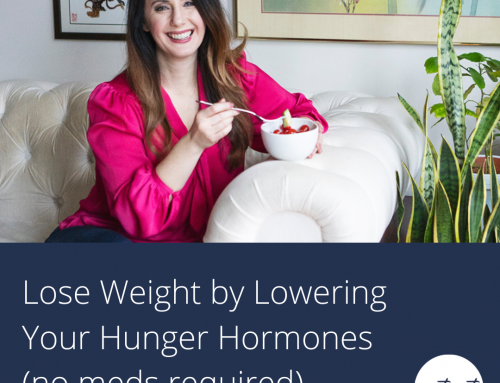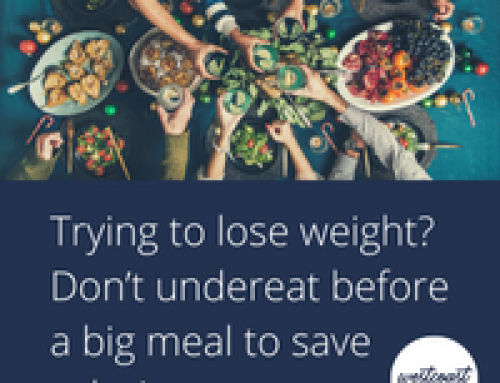Ready to ditch fad diets for good? Then it is time to work on your healthy eating mindset. This week we’re doing a dive into what is ACTUALLY holding you back from eating well consistently (and the results that come with that). Spoiler alert – it’s not that you haven’t tried the newest fad diet, cleanse or challenge so put down the shake and get ready for some real talk about why consistency and progress has been hard.
1. Getting ENOUGH nutrients
We’re starting here because it is something I address with all my clients, even the ones who overeat sometimes. When you’re not getting enough of key nutrients like protein, fibre, or vitamins and minerals your body responds by driving up hunger hormones to convince you to eat more food so it can meet those basic needs. You end up overeating (usually not on the good stuff because hunger hormones often point us in the wrong direction), feeling crappy about it, so restricting food some more. See how this vicious circle goes?
The Fix:
Avoid super low calorie diets unless you have a medical need (like Type 2 Diabetes, upcoming surgery you need to reduce the risk for etc) – for most adults anything under 1300-2000 calories is going to stimulate this response.
Get plenty of protein and plant foods at every meal. Protein and fibre are key regulators of hunger hormones, and also help with most health goals from weight loss to digestive issues. Once this is solid you can dabble with calories and shifting macronutrient balance.
2. All or nothing mindset around food
Nobody likes to hear that they’ve let their brain hijack their success and sabotage their efforts, but this comes up a lot. Brains are powerful. Our response to success or perceived failure has been ingrained from our family, media, and culture for decades for most of us. Mindset has a huge role to play in getting enough consistency to see real change in your body.
Do you ever eat really well all week but then give up when you make a mistake like grabbing a doughnut or face planting into the ice cream container? Think “well I’ve already ruined today so I might as well keep going” as you order pizza instead of heating up leftovers? Vow to start again on Monday even though it’s only Wednesday?
You’re not alone. As North Americans we thrive on pushing really hard, but struggle when that effort or energy burns out. We also tend to equate how we eat as “good” or “bad” with very little in between. This sets us up for failure. If your kid was getting A’s and B’s on all of their tests, but then failed one pop quiz, would you make them do the grade over? If you were running in a race and tripped with a couple kilometres to go, would you lay on the ground for two weeks before getting up and getting going? Would you go all the way back to the start and begin the race again? Of course not! It’s giggle worthy to think of it this way, but it is exactly what we do with food.
Because we’re always hitting the screw it button over normal variations in how we’re eating, and flat out giving up or starting over, we never get that consistency that is king to see real changes in how you look and feel.
The Fix:
Set the bar lower. Yep, I mean it. Instead of vowing to eat no sugar for a million days, try having 2-3 small treats a week. Instead of going from no exercise to daily boot camp. Schedule 3 workouts into your calendar and nail them. Instead of going vegan when you barely eat any vegetables and hate beans, commit to trying a new salad recipe each week so you can get more in. When we succeed in any small way, it gives our brain a bump in happy hormones. And that starts a new pathway that doing this healthy thing is good and rewarding. You can up the ante when the first step feels consistent and natural, but not before (especially without external accountability like a coach or health care professional).
Pick one of the starting over analogies above (grades on quizzes or tripping on a trail) and make yourself think about it when you’re tempted to go all in or all out. It should lighten the mood, and remind you to be better than letting normal human flops sabotage entire days or weeks.
3. Sustainability and Enjoyability
Is the way you’re trying to eat something you can enjoy enough to keep doing? Fad diets are generally super restrictive, overly complicated and generally too tough to stick to long term unless you have superhuman dedication.
Unless you have some very specific health conditions, the way you get to a goal weight or healthy gut is often the way you’ll need to keep eating to stay there. There is no magic pill when you reach the goal that changes your metabolism back to your 20 year old self just because you made it to a new weight. I don’t want this to be a downer, just a reminder that the quick-fix super restrictive stuff is going to bite you in the butt (see #1) and isn’t going to actually keep you feeling good. To sustain change the way you’re eating needs to be something you can keep up (not super complicated, overly restrictive etc.) and enjoyable (yep! Healthy eating should be a good thing). Discipline and motivation are finite resources that will not last forever if you’re draining them rapidly with something that is overly limiting or doesn’t suit your tastes.
The Fix:
Learn to be suspicious of quick fixes – from trendy fad diets to pills to shakes. Most diet related products that claim to change anything about your health in 6 -12 weeks are pure BS. If you have metabolic dysfunction it would take much longer to fix and also likely require a full nutrition and medical workup to determine the root cause.
Before starting anything, ask yourself if you could KEEP eating that way. Low carb won’t work well for those who starchy carbs may be a supreme comfort or culturally important. Vegan isn’t going to be really manageable for someone who gets awful bloating and discomfort with beans and legumes. Be honest about your preferences and leanings. It will save a ton of heartache from losing and regaining the same weight.
Practice dipping a toe in (instead of diving in head first) with new diets or approaches. Interested in low carb or vegan? Try 1-2 meals in that style per week for a few weeks and see how you feel.
4. Cravings and emotional eating
You can have all the knowledge in the world, but if you get super strong cravings or struggle with emotional eating in some way no diet will fix it because there’s a leak in the system. The reality is life can be hard (SO hard, this year is a great example) so if we use food as a coping tool more than our body can handle we will always get dragged off track of whatever diet or approach to eating we’re doing even if it actually feels really good.
The Fix:
Focus on the root problem. You might be struggling with stress at home or work, crappy boundaries with your boss, not enough sleep, or habits to eat at the end of the day ingrained since childhood. Addressing where your cravings are coming from and finding new ways to cope with everything life throws at us is imperative if you’re going to KEEP eating well long term. Turning to a fad diet for a quick fix is likely to make all of those external stressors (and your cravings) worse.
If your eating seems cyclic (time to a time of day or activity), try building a new healthier ritual that still feels good like a cup of fancy tea, reading in bed instead of snacking on the couch, or picking up a hobby like knitting, gaming, or meditation.
Seek help if it’s hard to sort out on your own. A therapist can be a fantastic tool to get to the root of old patterns and find healthy ways to cope. A Dietitian with training in emotional eating can help you rewire how your brain works around food. In fact we run a group program called Conquer Your Cravings that is designed for all of us who struggle with this kind of eating. You can sign up for the waitlist here if you know this is something that has held you back long enough. In the interim check out these other reasons frequent hunger and cravings might be pestering you. All this being said, what we eat ALSO matters. The goal here is not to ignore the importance of what’s on our plate but to instead make sure we’re fixing the foundation so when we find a way of eating that feels awesome we can keep doing it.
Need some help getting your meals for the week balanced and prepared? If you’d like to receive our free Meal Planning Getting Started Guide AND get in on our weekly emails about all things nutrition so you can get clarity and confidence on what you’re eating, join us here!






